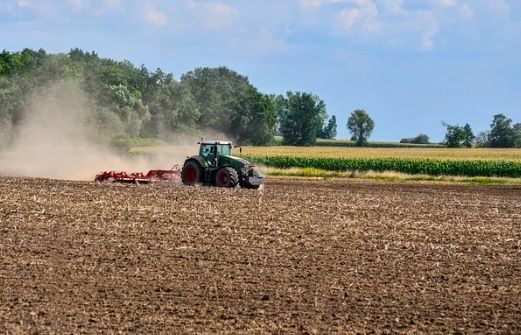
How Agriculture Contribute to Economic Development – Agriculture has been a source of livelihood for many people. It is a source of income generation for them, eradicates Hunger among others. For most less developed countries, the Agricultural sector plays a great role to the development of the economy. Agriculture tackles the issue of food security and adds up to foreign exchange earnings which is a strategic development for long term survival of a country. The contribution of Agriculture to the economic development of a country like Nigeria cannot be overemphasized. Agriculture contributes to a Nation Gross Domestic Product (GDP), provides Employment among so many other functions. The teaming populations of some nations cannot rely on food imports as this may be expensive and unreachable to those in rural areas, thus, Agriculture in such nations fills these gaps.
Most developing countries in West Africa benefits hugely from the proceeds of their Agricultural exports. Notwithstanding the various challenges facing this sector, it needs to be promoted to maximize output so that those countries who benefits from it will continue to achieve continuous economic growth with it.
How Agriculture Contribute to Economic Development
1. Agricultural Sector Contributes to Foreign Exchange Earnings
The Agricultural Sector contributes to foreign exchange earnings through export of merchandise. Agriculture promotes the international competitiveness and foreign exchange earnings through exports and conservation of foreign exchange through import-substitution of competitive imports. One of the things that causes persistent recession in developing countries is excessive dependence on imports. This also contributes to the scarcity of foreign exchange which the Agricultural sector tends to minimize. When local Agricultural raw materials are utilized, it facilitates exports.
2. Contribution to Employment
A great percentage of people engages in Agriculture in developing countries. In some less-developed countries where there are uneducated people, Agriculture is the easiest means of livelihood for them. The Agricultural sector has also encouraged the production of farming implements by those who can produce it, which inturn is being bought by farmers. This also acts as a source of employment for them as it is a source of livelihood for such people. Another factor that makes Agriculture a more comfortable job for the majority of less educated and unskilled people is that the duration of acquiring its knowledge is not long. In this way, in most families, it is a practice that is transmitted from one generation to the other.
3. Eradication of Hunger and Promotion of Food Security
Agriculture eradicates hunger in particular and poverty in general. In developing countries, this sector is important for the supply of adequate and affordable food to its people. Those that can’t afford imported foods can afford their local produce. Also, relying on food importation is not sustainable and any developing country has to produce enough food for its people. Food importation is not a viable option in a situation of foreign exchange scarcity and so Agricultural sector’s food supply to Urban industrial sector becomes inevitable. Food Security is also a strategic development objective for long term survival of the nation.
4. Supply of Raw Materials for Domestic and Industrial Use
Most raw materials used in developing countries are raw materials from Agriculture. For the attainment of industrial development in such areas, agricultural development is crucial for the supply of relatively raw materials. Agricultural raw materials are also used for domestic industrial development in respect to the construction sector. It provides source of inputs for the building sector.
5. Curbing Excessive Migration to Urban Centers
There has been excessive increase in rural-to-urban migration most especially in developing countries like Nigeria. This created a large concentration of people in the urban areas thereby creating environmental problems in such areas. With proper agricultural reforms, there will be improvement in the productivity and industrialisation of the rural areas. Developed countries that have achieved this have a reasonable amount of their population gainful engaged in Agriculture in the rural area. This results to a balanced environment and proper distribution of people.
I believe this article answers your question on “How Agriculture Contribute to Economic Development.” Every nation that wants a to achieve a stable Economic growth needs to pay adequate attention to their Agricultural sector because contribution of Agriculture to Economic Development is paramount to every country.
Also Read; Major Problems of Agriculture in Nigeria and Solutions
Why Small Business is Important to a Country’s Economy
